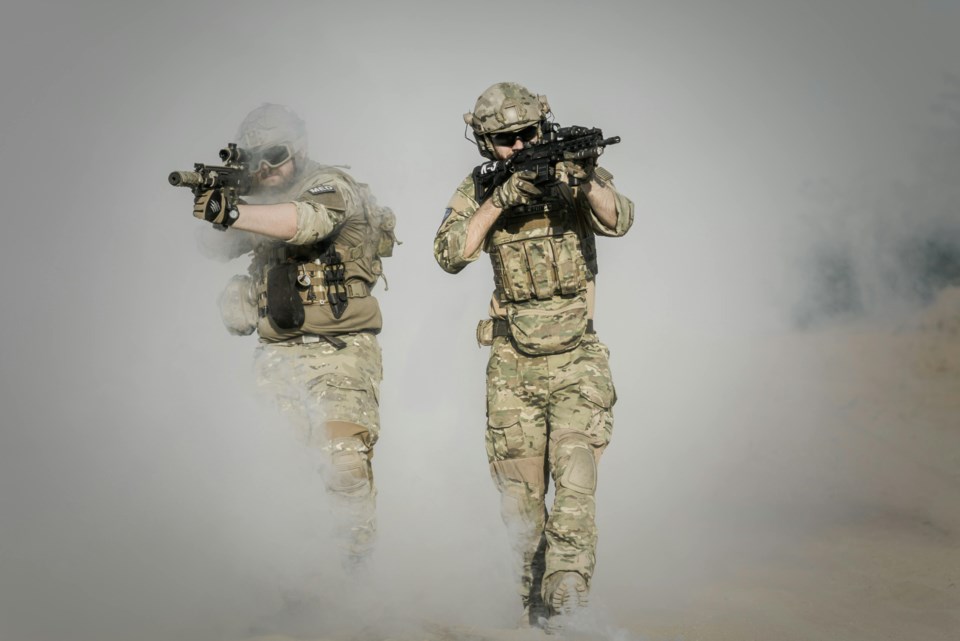A depicts the world in 2040 after monuments are erected and films are made to recognize and honour those who perished in what some today call “The Gaza Genocide.” As the scene closes, children from around the world confront their parents and grandparents, asking, “Why didn’t you do anything?”
On many levels, I relate to this video. My grandfather was an elementary school teacher in Nazi Germany. He passed away when I was too young to ask him questions about the Holocaust, like “Why didn’t you do anything?” While I found no evidence that he collaborated in genocide, I know he lived under a tyranny where dissent could mean death or exile. Simply stating that “Hitler is worse than the communists” resulted in him being removed from his classroom.
I am disturbed by the silent complicity of my grandfather’s generation, yet I bear no responsibility for their inaction. However, I am accountable for what I do today to make “never again for anyone” a reality, especially since I live without totalitarian restrictions. In learning, teaching, and writing about genocide – be it the Nazi Holocaust, the Cambodian Killing Fields, or the Rwandan Genocide – I strive to face the haunting question: “Why didn’t you do anything?”
I was an adult during the Rwandan Genocide in 1994. While 800,000 people were slaughtered in just 100 days, the international community watched, paralyzed by political calculations and lack of willpower. When I discuss it with my students, I have no choice but to admit that this horror unfolded within my lifetime. We should have learned from it to prevent future atrocities, yet history shows the opposite: mass violence has occurred in Bosnia, Darfur, and Myanmar, and each time, humanity seems to fail again.
The global response to the violence in Gaza is uniquely characterized by unprecedented media coverage and massive global protests. Recent reports state that there are over 40,000 Palestinian casualties, with nearly half of those deaths being children, in addition to extensive destruction of infrastructure, displacement and lack of essential supplies. Human Rights Watch and Amnesty International have raised concerns over potential violations of international humanitarian law, citing indiscriminate attacks on civilians and prolonged collective punishment that have devastated communities. Major organizations like Médecins Sans Frontières (Doctors Without Borders) have documented the humanitarian crisis, calling for an end to the siege and unrestricted access for humanitarian aid.
But the question remains: with these confirmed accounts, why are we still bystanders? As Jewish-Canadian trauma specialist Dr. Gabor Maté articulates, “I don’t feel guilt about what Israel is doing ... It’s a question of rage, it’s a question of outrage. And the problem is that the outrage is helpless ... because all the post-colonial legacy governments are supporting this current ethnic cleansing and colonial perpetration. So the proper response is ... how can we channel our healthy rage? And … that’s where we run into trouble because … we also have to accept that we’re helpless.” Maté’s words resonate with the helplessness felt by many, trapped in systems that seem impervious to moral outrage.
Adding to the helplessness is the gaslighting we face: accused of supporting terrorism or harbouring hate for advocating against violence, many find their concerns dismissed. But if those casting these accusations paused to listen, they would see that our calls are not for one side’s victory over another but for an end to suffering. Countless studies and historical analyses confirm that bombing civilian populations rarely achieves long-term security and often sows resentment that endures across generations.
When my grandchildren ask me one day about Gaza – just as I would have asked my grandfather about the Holocaust – I want to have an answer that doesn’t rely on helplessness. While I can’t change the world singlehandedly, I am compelled to act, to speak, to write, and to resist apathy. The legacy of silence is too burdensome a history to pass down to another generation. And for those who advocate or remain indifferent, what will they say to their children and grandchildren? Will they be able to face themselves?
Gerry Chidiac specializes in languages and genocide studies and works with at-risk students. He received an award from the Vancouver Holocaust Education Centre for excellence in teaching about the Holocaust.
Gaslighting defined
Gaslighting is a form of psychological manipulation in which one person or group makes another person or group doubt their perceptions, memory, or reality.
©
The commentaries offered on Â鶹´«Ã½AV.ca are intended to provide thought-provoking material for our readers. The opinions expressed are those of the authors. Contributors' articles or letters do not necessarily reflect the opinion of any Â鶹´«Ã½AV.ca staff.




